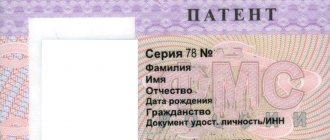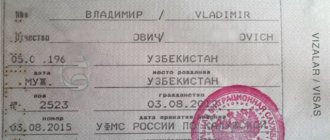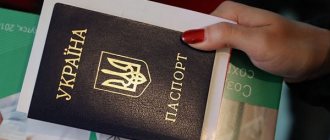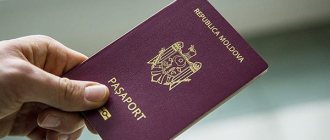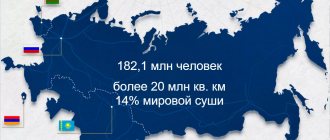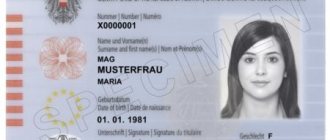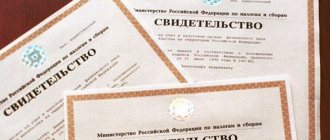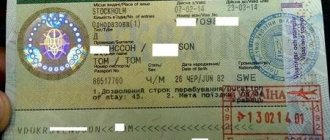Probably every person, coming to another country, experiences some discomfort. This is especially true in cases where the purpose of the visit is related to job search. Where a foreigner can work, where he cannot, what documents to draw up and where to apply for them - these and many other questions concern job seekers. Let's try to answer them and tell you how the employment of foreign citizens is carried out in 2021 in Russia.
Labor activity of migrants in Russia
Every person has the right to choose where to live, study or work. Some people feel comfortable in their native country (as they say, “where you were born is where you come in handy”) and travel beyond its borders exclusively as a tourist. And some leave their homeland in search of a better life or at least a good job. However, the employment procedure for foreigners is almost always different from the procedure for local residents.
For example, in Russian legislation there are many relevant regulatory documents, a full list of which can be found in the article on.
When it comes to a foreign employee, the employer must understand that this comes with certain responsibilities and increased responsibility. Hiring a foreigner is somewhat more difficult than hiring a compatriot, but ultimately all these measures are aimed, among other things, at protecting the interests of the employer himself. In addition, if you carefully study the features of working with foreign citizens, no problems should arise.
Hiring Azerbaijani citizens for the state in 2021
Outstaffing
– hiring foreign employees on staff, when the employee works at the employer’s enterprise, but is employed and documented by a third-party organization (recruitment agency).
Employment of an Azerbaijani citizen as a full-time employee looks like this for an employer (the scheme is significantly simplified due to the fact that almost the entire procedure for hiring a foreigner falls on the recruitment agency):
- Find a reliable outstaffing agency (check documentation, information in open sources about the duration of the company’s operation, payment of taxes, types of activities, etc.).
- Collect documents for all foreign citizens whom the employer plans to hire. Transfer papers to a third party.
- Sign a contract for the provision of services (providing labor for workers).
- Wait until the recruitment agency carries out the necessary procedures (signs employment agreements with foreigners, checks the validity of documents, notifies the Main Directorate for Migration of the Ministry of Internal Affairs of Russia).
Employment procedure
The legislation does not set impossible tasks: all actions are quite understandable. The employer and the foreign citizen are only required to comply with established rules and procedures. After all, why create additional problems for yourself?
So, let's find out what the basic rules are for officially employing a foreigner to work in the Russian Federation and whether there are exceptions to them. It is a mistake to think that only a foreign citizen will have to worry about concluding an employment contract. In this case, both parties - the employer and the employee - must fulfill a number of conditions. Moreover, the first is subject to almost more requirements than the second. Let's start with it.
Without going into details, the step-by-step instructions for registering as a foreign employee look something like this:
- Obtaining permission to attract foreign workers. Without it, the employer does not have the right to enter into labor contracts with migrants, however, such permission is not required if the potential employee: arrived from a country whose citizens do not need to apply for a Russian visa;
- is a highly qualified specialist or a family member of a highly qualified specialist;
- receives higher education full-time at a Russian university;
- sent to work in a branch / subsidiary / representative office of a company registered in the territory of a WTO member country.
Any sane employer would prefer to act in accordance with the law rather than risk its reputation. Labor legislation is already a complicated matter, especially in the case of migrants. In addition, it is impossible to predict when, and most importantly, how certain norms will change.
So, we have sorted it out with an employer who is puzzled by how to gradually hire a non-resident. What is the non-resident himself doing at this time? What are the requirements for it? The main responsibility of a potential employee is to complete the established list of documents and provide them to the employer.
Documents for getting a job
It would seem that nothing is easier than preparing the necessary papers. However, everything is not always so easy and simple: completing some documents will require time and money. In this part of the article, we will consider what documents a foreign citizen needs to work in Russia, where and how to obtain them.
Patent and work permit: what is the difference
As we have already found out, an employer can hire foreign workers if he has an officially issued permit. Ignoring this rule will sooner or later lead to questions from the migration authorities. Therefore, when planning to hire foreigners, you should not engage in amateur activities and play with the law; it is better to obtain a permit to employ foreigners. However, even its presence does not guarantee the conclusion of an employment contract with a migrant.
A potential employee must also have permits (with the exception of some cases, which we will talk about a little later). They, as the name suggests, give the right to find a job in Russia.
The legislation provides two options for the employer: hiring a foreigner with a patent or concluding an employment contract on the basis of a work permit.
The patent is issued by foreign guests who entered the Russian Federation under a visa-free regime. The important thing in this situation is that the migrant has the right to work only in the region in which the patent was issued. In some cases, profession may also be indicated.
For more information about what information is contained in the document, how and for how long it can be extended, read the material about.
Work permits are issued to foreigners crossing the Russian border on the basis of a visa. Otherwise, the permit is very similar to a patent: it is also valid only in the region of issue, and it indicates the profession, specialty or type of activity.
True, there are some peculiarities in the design of this document, in particular for certain categories of citizens, which can be learned from the publication about.

Who has the right to work without a patent/work permit
Most rules have exceptions. Therefore, it can be assumed that in the case of the employment of migrants, some deviations from general norms are provided. Actually, that's true. The legislation of the Russian Federation leaves several opportunities for employers to make their lives easier and hire foreign citizens without a work permit or patent.
By the way, there is a rather noticeable difference in the procedure for obtaining these documents for foreigners: a patent, as a rule, is issued independently, but a work permit is issued by the employer.
Persons arriving from countries that have a visa-free regime with Russia must obtain a patent, and all other foreigners must obtain a work permit.
However, you will not need to obtain permits if the foreigner:
- Temporarily or permanently resides in the Russian Federation.
Foreign citizens temporarily residing in Russia include those who have been issued a temporary residence permit (hereinafter referred to as TRP). Important: in this case, the potential employee is exempt from obtaining a patent or work permit. For an employer, hiring a foreign citizen with a temporary residence permit is not a reason to shirk his responsibilities: permission to hire migrants must be issued as required by law. After all, regardless of whether there is a temporary residence permit or not, these citizens remain foreigners, which means it is unacceptable to use their labor without the appropriate permission.Foreigners who have received a residence permit (hereinafter referred to as residence permit) are called permanent residents of the Russian Federation. As a matter of fact, applying for a job to a foreigner with a residence permit in Russia is carried out in the same manner as in the case of a temporary residence permit.
- Is an employee of international organizations / consular offices or diplomatic missions of other countries (or hired by these persons).
- He is a participant in the state program for the resettlement of compatriots.
- He is an employee of foreign organizations performing installation work, service and warranty maintenance, and post-warranty repairs of technical equipment.
- Studying full-time at a Russian university and working: during the holidays;
- in his free time from studying in the same educational institution or a business entity/partnership reporting to it.
- Belarusians (The Republic of Belarus stood, so to speak, at the origins of this international act and was one of the three countries that signed it on May 29, 2014 in Astana. As a matter of fact, since then, citizens of the fraternal republic have enjoyed privileges when applying for work in the Russian Federation. And on the contrary: if a Russian comes to Belarus to find a job, he will be subject to the same requirements as a native resident of the country);
Identity documents
When concluding an employment contract, the personnel officer will definitely ask to present a passport or other document replacing it. This may be an identity card, a certificate of temporary asylum and other documents that confirm the identity of their owner.
Documents confirming the legality of stay in the Russian Federation
The following may be presented as such:
- migration card and notification of the arrival of a foreign citizen with a note on migration registration;
- RVP;
- Residence permit.
Subsequently, information about these documents is included in the employment contract.
Providing a work record
A work book is the main document of a working person; it is a kind of chronicle of work activity, where information is entered about the employee, the employer, the position held, employment, transfer or dismissal. It also contains information about incentives.
SNILS
This abbreviation hides a certificate of compulsory pension insurance. It is very familiar to the vast majority of working citizens of the Russian Federation - a small laminated card of light green color.
But what should foreigners do, who have hardly ever dealt with such documents? After all, each country has its own characteristics of pension accounting.
Read more about.
Education documents
No employer is eager to hire an uneducated employee. In any case, at the interview, a representative of the personnel service or the manager himself will definitely open the diploma (and sometimes ask for an insert with grades).

If we are talking about hiring for a position that requires special qualifications, you need to be prepared to present a document confirming this qualification (certificate, diploma, etc.) or the presence of special knowledge.
How does migrant status affect employment?
Foreign citizens in the Russian Federation are divided into three categories:
- Temporary stayers have only a visa (if they arrived from a visa country), a migration card and a tear-off part of the migration registration form;
- Temporary residents have a temporary residence permit stamp in their passport;
- Permanent residents have already received a residence permit.
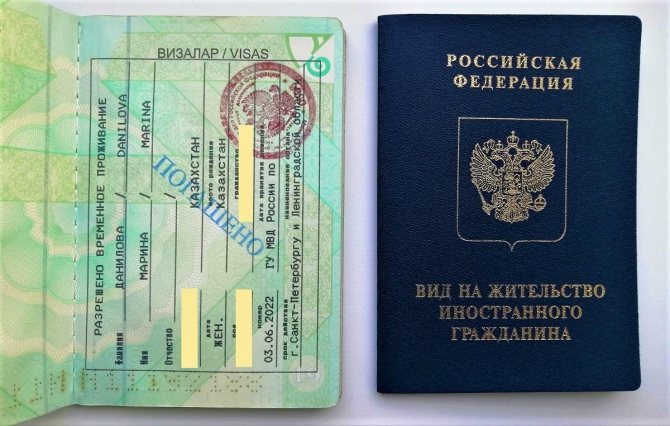
Representatives of the last two categories do not need a patent or work permit, regardless of their country of citizenship. But those staying temporarily need one of these documents.
The only exceptions are foreigners who came from the EAEU countries (Armenia, Belarus, Kazakhstan, Kyrgyzstan). They do not need permits to work.
Please note: Holders of a temporary residence permit have the right to work only in the entity where the permit was obtained. An employer from the Moscow region cannot hire a foreigner with a Moscow permit. People with a residence permit can work in any region.
What diplomas are recognized in the Russian Federation
Diplomas issued in foreign countries are recognized in the Russian Federation on the basis of international treaties. Also, the document will be recognized in the Russian Federation if it was received in an educational organization that is part of a special one.
It also happens that a document on education or qualifications cannot be recognized as complying with the legislation of the Russian Federation in the above ways. In this case, the foreign citizen has the right to apply for recognition to the Federal Service for Supervision in Education and Science.
Medical policy
A Russian, as a rule, has a compulsory health insurance policy, which guarantees the provision of medical care (including emergency care). In this regard, it is more difficult for a foreigner, because no one will give him a compulsory medical insurance policy on the territory of the Russian Federation, and insurance issued in another country (of course, if there is one) will not be valid in Russia. The list of documents for employment includes a voluntary health insurance policy (VHI), which must be issued by a foreign citizen.
Other documents
All of the above is an almost complete list of what a foreigner needs to work. But still, in some cases, employers expand the list, supplementing it with new documents. These may include, for example, various kinds of portfolios, examples of work or publications, etc. Most often, this is dictated by the need to assess the candidate’s qualification level and understand how well he meets the employer’s expectations.
Legalization of documents
As required by law, all documents drawn up in a foreign language must be translated into Russian and notarized. Exceptions to this rule can only be made if there is a corresponding international treaty.
Legal options for hiring Azerbaijani citizens in 2021
The law allows a citizen of Azerbaijan to find employment in two ways, each of which has its own advantages and disadvantages:
- Register the foreigner officially as a member of the company staff
(in this case, all responsibility for informing the Department of Internal Affairs of the Ministry of Internal Affairs of Russia and for checking documents falls on the employer personally or on his lawyer, human resources department, accountant or representative). - Hire an Azerbaijani as part of the company's staff
(a third-party organization will arrange it for itself, will fully undertake the documentary support of labor relations and communication with the migration service, but the services of such an intermediary will cost money).
Employment of foreign students
Foreign students receiving full-time higher education at Russian universities and wishing to find a job must apply for a permit.
Permission is not required if the student plans to work:
- during the holidays;
- in free time from study: in the same institution where he studies;
- in business companies/partnerships created on the basis of this educational institution.
By the way, in these cases, the employer does not need to obtain permission to hire foreign workers and send notifications to the Main Directorate for Migration of the Ministry of Internal Affairs of the Russian Federation.

To obtain a work permit, a student must contact the territorial unit of the Main Directorate for Migration of the Ministry of Internal Affairs of the Russian Federation with a corresponding application. The following documents are attached to it:
- Passport or equivalent document.
- Migration card.
- A certificate confirming full-time study at a Russian university.
- A certificate confirming the absence of dangerous diseases (drug addiction, syphilis, leprosy, tuberculosis, HIV).
- Employment contract.
- Receipt for payment of state duty.
Important: the absence of a receipt cannot be a reason for refusal to accept documents. The main thing is that the fee has been paid; migration officials can independently verify the receipt of payment through a special information system.
A work permit is issued for the duration of the employment/civil contract and can be renewed several times, but each time for no more than a year. However, it should be taken into account that the validity period of a work permit cannot exceed the period of study.
Where foreign citizens cannot work
Migrants have the right to choose which industry to give preference to in terms of employment. There are many options, but without exceptions, as they say, nowhere.
Foreign citizens cannot:
- be in state/municipal service;
- hold the positions of captain, chief mate, chief engineer and radio specialist on a ship that sails under the flag of the Russian Federation;
- be crew members of: warships;
- other vessels used for non-commercial purposes;
Quotas for foreign employees
No matter how ugly it may sound, labor migrants are, first of all, competitors for our compatriots. It happens that preference is given to a foreigner rather than a Russian. It is difficult to say why this happens, since employers prefer not to disclose the reasons for refusal to applicants.
In order to control the employment of foreign citizens, a measure such as quotas may be applied. Every year, the Government of the Russian Federation determines the need to attract foreign labor. After this, the quota (the number of work permits) and its distribution for the next year can be approved.
For example, for 2021, the total number of work permits and their distribution by professional qualification groups looked like this:
| Professional qualification group | Quota |
| Heads of institutions/organizations/enterprises and their structural divisions (services) | 7007 |
| Specialists in natural sciences and engineering | 3101 |
| Mid-level specialists in physical and engineering fields of activity | 2750 |
| Middle staff in the field of financial, economic, administrative and social activities | 5349 |
| Workers in the field of personal services and protection of citizens and property | 3938 |
| Salespeople, product demonstrators, models and clothing demonstrators | 1046 |
| Qualified workers in commercial agricultural production, forestry and hunting, fish farming and fisheries with a market orientation | 7912 |
| Workers engaged in mining, capital mining and construction, installation and repair work | 78560 |
| Workers in the metalworking and engineering industries | 10851 |
| Other professions of skilled workers in large and small industrial enterprises | 19760 |
| Operators, machine operators and machinists of industrial installations | 3263 |
| Operators, operators, machinists and fitters of stationary equipment | 13398 |
| Drivers and operators of mobile equipment | 4862 |
| Unskilled workers common to all sectors of the economy | 6064 |
| Other professional qualification groups | 9182 |
| Total | 177043 |
The general quota is distributed among the constituent entities of the Russian Federation, and then among professional qualification groups within a specific region. The number of permits that foreign workers can obtain depends on many factors: the socio-economic climate of the region, the need to attract foreign specialists, the presence of enterprises in a certain industry.
However, a foreign citizen is not interested in these reasons; he is much more concerned about the result - the quota. Regional quotas and their distribution approved
For which industries are quotas not established?
Based on the above, we can conclude that there is no industry where there would be no quotas. They have been approved for almost all areas: industry, agriculture, economics - everything is subject to planning. Moreover, in the approved distribution there is a clause “other professional qualification groups”. And if the list does not contain the exact name of the profession, then almost anything can be included under this item.
There are still categories of citizens who are not subject to quota requirements. These include:
- full-time students receiving education at universities of the Russian Federation;
- foreigners coming to work in branches/subsidiaries/representative offices of companies registered in WTO member countries;
- highly qualified specialists.
Can a citizen of Azerbaijan be hired in another region?
It happens that Azerbaijan issued a temporary residence permit in one region, and later came for an interview at an organization located on the territory of another constituent entity of the Russian Federation. In such cases, employers should remember that Federal Law No. 115-FZ of July 25, 2002 prohibits foreign citizens from being employed by companies that are located outside the region of the Russian Federation in which the temporary residence permit was issued
.
This order is due to the fact that the population of Russia is unevenly distributed throughout the country, and some regions experience a shortage of qualified personnel, young specialists and labor. At the same time, in other regions of the Russian Federation there is an excess of unemployed people looking for work, including migrants. Therefore, in some regions a temporary residence permit can be obtained in a simplified manner, and it would be unfair to take advantage of this opportunity and then leave the region (from the Bryansk region, for example) and get a job, say, in Moscow or Moscow Region.
However, such restrictions do not deprive an Azerbaijani citizen of the opportunity to move to another region and find work there
. If necessary, you can contact the territorial department of the Department of Internal Affairs of the Ministry of Internal Affairs of Russia (the one that put the RVP stamp in your passport) and submit documents to move to another part of the country.
Important!
An employee of the Department of Internal Affairs of the Ministry of Internal Affairs of Russia will review the documents within 2 months, which does not guarantee a positive result. Permission to leave the region will be granted only if there are valid reasons. For example, an Azerbaijani who has bought an apartment in another subject of the Russian Federation or found relatives there will be able to leave for another region.
Employment of highly qualified specialists
Foreign specialists who have skills, experience and achievements in a certain field of activity are recognized as highly qualified. The employer determines the qualification level of a potential employee at his own peril and risk. The law does not give clear instructions on how to do this: everyone chooses the most preferable assessment method.
As already mentioned, work permits for highly qualified specialists are issued without taking into account quotas. In addition, minimum wages are established for them.
Specific figures, as well as the specifics of issuing work permits, concluding and terminating employment contracts, can be found in the article about.
What taxes do foreign workers pay?
The stay of foreigners in Russia is regulated not only by migration, labor, but also by tax legislation. The first establishes the rules for the presence of foreign guests on the territory of our country, the second determines the procedure for the relationship between the employee and the employer, but the third regulates the procedure for settlements with the state. It just so happens that tax revenues make up a fairly impressive part of the budget.
To find out what role foreigners play in this, we recommend reading.
The most common question relates to how migrants pay income tax. With Russians, everything is simple: every month a tax amount is withheld from an employee’s salary. What about foreigners? What is the procedure for calculating and paying tax? What are the rates and terms for transferring to the budget?
Read more
How employers deceive employees
Perhaps there is no area that is absolutely free from scammers and swindlers: there will be at least one cunning one. Enterprising people invent all sorts of schemes and pyramids in pursuit of profit and easy money. Unfortunately, relationships between employers and employees are not always built on honesty. In addition to the fact that it is quite difficult for a foreigner to find a job in Russia, some employers turn out to be, to put it mildly, unreliable.
The most common ways to deceive employees include:
- Please deposit funds. Advance payment, down payment, returnable deposit – there are a lot of names for this, but the essence is the same: pay the money, we’ll hire you. There is no need to be afraid of incomprehensible words (and believe me, scammers will not be stingy with them): if you receive such an offer, you should boldly refuse. Such actions by an employer when hiring a foreigner (as well as a Russian) are unacceptable: as soon as the scammers receive the money, they will disappear in an unknown direction.
- Incorrect drafting of an employment contract. You need to carefully read the text of the contract; it must contain clear wording, especially those related to job responsibilities. You should not agree with the text, for example, “...and carry out other instructions of the manager...”. Managers are different: by signing up for such responsibilities, you can turn into the boss’s personal assistant.
- Drawing up a “preliminary” or “draft” employment contract, which will indicate a lower salary or a different position, or both. Also, under no circumstances should you do this: there is a very high probability that later the employer will have a million reasons not to sign a new employment contract.

Termination of an employment contract with a foreign worker
In addition to the question of how a foreigner can get a job in Russia, there is also the exact opposite: how to quit this job? Article 77 of the Labor Code of the Russian Federation defines the general grounds for terminating an employment contract with an employee. They apply to both Russian citizens and foreign ones. However, for the latter, this list is somewhat expanded.
We will not give general reasons; we will only indicate additional ones that apply exclusively to foreigners:
- cancellation/suspension/expiration of the permit to attract foreign workers;
- cancellation/expiration of work permit;
- expiration of the VHI policy;
- revocation/expiration of patent;
- cancellation/expiration of a temporary residence permit (for temporary residents of the Russian Federation) or residence permit (for permanent residents of the Russian Federation);
- bringing the number of foreign employees in line with quotas;
- impossibility of temporary transfer;
- the inability to return an employee to his previous job after the expiration of the temporary transfer.
Read more about.
Hiring an Azerbaijani citizen with a temporary residence permit (step-by-step instructions) in 2021
Important!
If a Russian employer hires an Azerbaijani with an incomplete set of documents, according to the law, the enterprise may be closed for 14-90 calendar days. It is also possible to impose a fine of up to 1 million rubles (depending on the legal form of the organization).
If an employer chooses the option of employing an Azerbaijani as part of a company’s staff, he must adhere to the following procedure in order not to break the law and not incur administrative liability:
| Step | Algorithm of actions | Detailed instructions |
| 1 | Be accredited as an employer of foreign citizens (it does not matter what status the foreign employee is in) | To be accredited in this case means to submit documents as an employer of migrants to the territorial office of the Department of Internal Affairs of the Ministry of Internal Affairs of Russia and thus register (it is important to wait for approval from the authorities). The requirement applies to both legal entities and individual entrepreneurs. |
| 2 | Make sure that Azerbaijan has temporary residence status in the country | This means that you need to check the presence of a stamp in your passport (temporary residence permit - TRP) |
| 3 | Determine citizenship and residence status | In our case under consideration, this is Azerbaijani citizenship and visa-free stay |
| 4 | Check existing documents (and the validity period of each of them must be sufficient for the entire period of employment) | If any documents from the list below are missing, you need to wait for them to be processed:
|
| 5 | Ask the employee to sign a consent to the processing of personal data (now such permission must be taken from citizens whenever personal information is intended to be used) | In the event that in the future an employee reports to the authorities about the illegal use of personal data, the employer will be able to absolve himself of blame by presenting the employee’s written consent to the processing of personal information. |
| 6 | Show the employee copies of the company’s internal documents (strictly BEFORE concluding an employment agreement!) | The following local regulations (if any at the enterprise) must be signed by the future employee:
|
| 7 | Sign an employment contract with a citizen of Azerbaijan (including the details of a medical policy or contract for the provision of medical services in the text of the agreement) | Having previously explained to the foreigner on what grounds the agreement can be terminated. |
| 8 | Issue an official order on the admission of Azerbaijan to the state | The employee must read the text of the order and sign the form |
| 9 | Instruct the new employee on working issues | Explain labor safety rules, present the results of a special assessment of working conditions (SOUT) |
| 10 | Fill out the work book | An entry on the hiring of a foreigner must appear in the work book without fail, despite the foreign origin of the employee. |
| 11 | Issue a personal employee card to a foreigner | Form T-2 (here the Azerbaijani must sign as a sign that he has seen the entry in the work book) |
| 12 | Conduct all other briefings (depending on the type of activity of the enterprise) | FPB (fire safety rules), emergency situations (emergency situations), civil defense (civil defense) |
| 13 | Send a notification to the Main Directorate of Migration Affairs of the Ministry of Internal Affairs that an employment contract (or civil service agreement) has been concluded with a foreigner. | It is necessary to notify the Main Directorate for Migration of the Ministry of Internal Affairs of Russia within 3 days from the moment the document is signed (if you are late or completely forget about notifying the migration service, a fine of up to 1 million rubles will be imposed, and the company’s activities may also be suspended for up to 90 calendar days) |

